We need a proper policy for battery-run rickshaws, not a blanket ban

Rushed decisions and lax enforcement have been the bane of policy efforts surrounding battery-run rickshaws in Bangladesh. Over the years, we have seen how the use of these vehicles—with their fragile structures and unsustainably high speeds often posing safety risks—has prompted either blanket bans or half-baked regulations, only for such efforts to prove futile as drivers invariably return to the streets. The High Court's directive on Tuesday—banning battery-run rickshaws on Dhaka's streets—and the inevitable pushback by drivers seem to perpetuate this cycle. A real solution that takes into account both the safety of passengers and the livelihoods of drivers, as well as the needs of this evolving city, remains elusive.
According to media reports, agitated drivers on Thursday again held demonstrations protesting the High Court directive. Following protests at Doyaganj in Jatrabari the previous day, they staged blockades at various intersections in Agargaon, Kallyanpur, Gabtoli, Mirpur, Mohammadpur, and Rampura, causing huge traffic disruptions. They also blocked railway tracks at Mohakhali for hours. If past trends hold, the authorities may again acquiesce to their demand, allowing them to operate as before.
We propose a three-pronged policy directive involving technical upgradation of the structures of battery-run rickshaws, retrofitting them with necessary suspension and braking features; detailed guidelines on where and to what extent they can operate; and proper regulations, including registration, driver training, and formalisation of other operational aspects.
But this will neither solve the problem nor address the deeper issues that perpetuate it. Weak enforcement is not the only issue here; the sector also suffers from lack of proper regulations. Currently, there is no official data on the number of mechanised and battery-run rickshaws and other illegal three-wheelers. However, unofficial estimates suggest there may be over six million such vehicles, with about one million within Dhaka city. The shortage of affordable public transportation relative to demand has led to an uncontrollable proliferation of battery-run rickshaws. The High Court first issued a nationwide ban in July 2014, but successive attempts to implement it or restrict their use have failed. Massive investments have already been made, so an outright ban, without alternative employment for those involved, is clearly not a wise solution.
That doesn't mean we should continue to ignore the safety concerns. According to the Road Safety Foundation, motorcycle accidents cause the highest number of road fatalities in the country, followed by accidents involving three-wheelers, including battery-run rickshaws. In Dhaka, the recent deaths of a student at Jahangirnagar University on Tuesday, and another woman at Shahbag earlier, again brought the issue to the fore. Clearly, things cannot go on as before. While many have recommended a gradual phasing out of these rickshaws, we believe this would only address the safety concerns without addressing what the city actually needs.
It needs something that's faster than traditional rickshaws but safer than the inherently venerable battery-run rickshaws. So, we propose a three-pronged policy directive involving technical upgradation of the structures of battery-run rickshaws, retrofitting them with necessary suspension and braking features; detailed guidelines on where and to what extent they can operate; and proper regulations, including registration, driver training, and formalisation of other operational aspects. And, of course, we must ensure strict enforcement of these regulations. Done right, this kind of vehicle could be a key part of city transportation. We urge the government to approach this issue with the thoroughness it demands.


 For all latest news, follow The Daily Star's Google News channel.
For all latest news, follow The Daily Star's Google News channel. 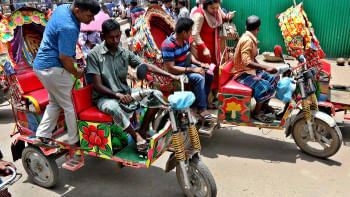
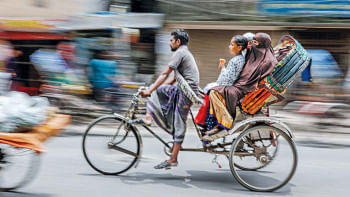


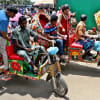
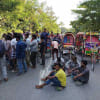
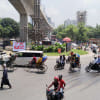
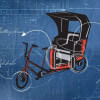
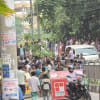


Comments